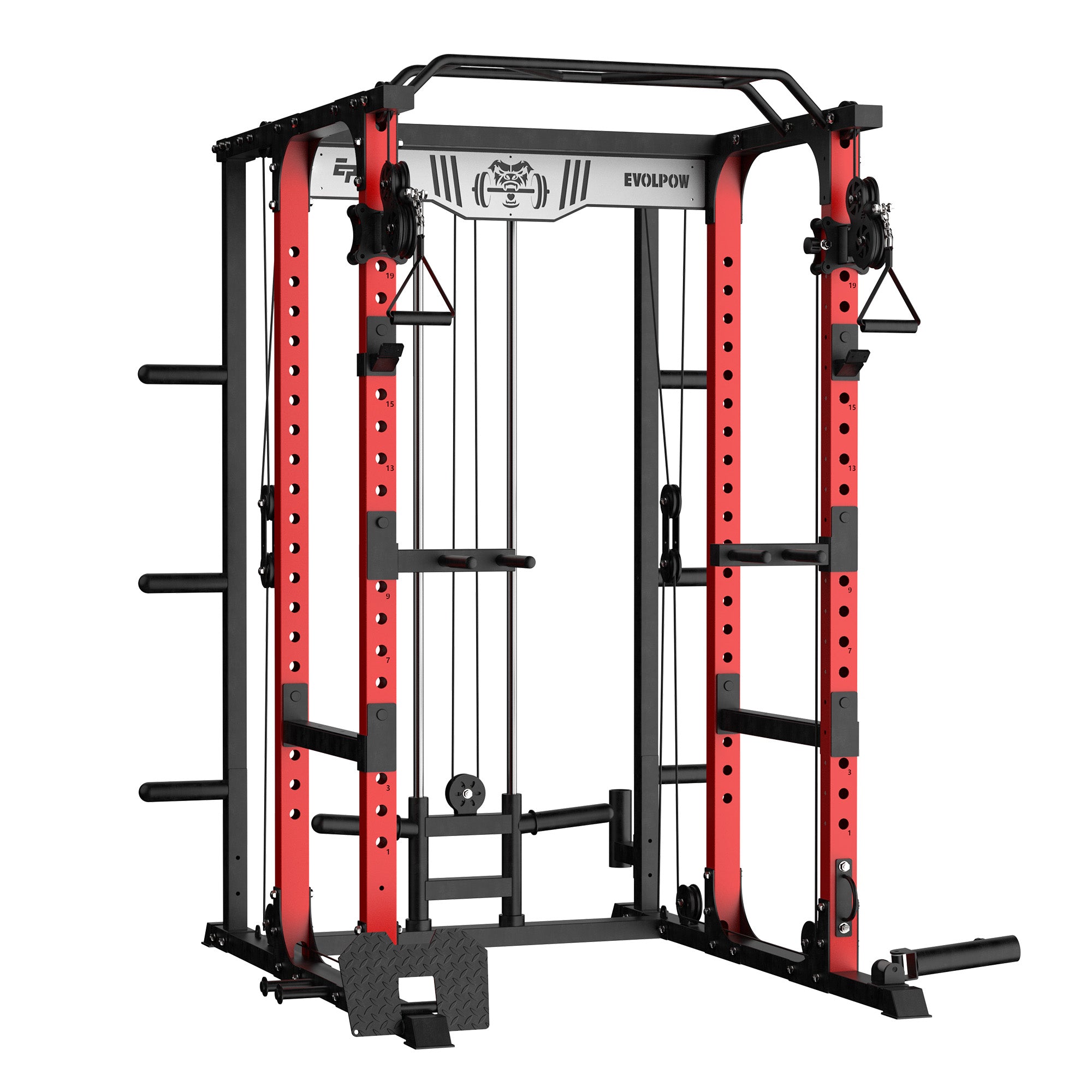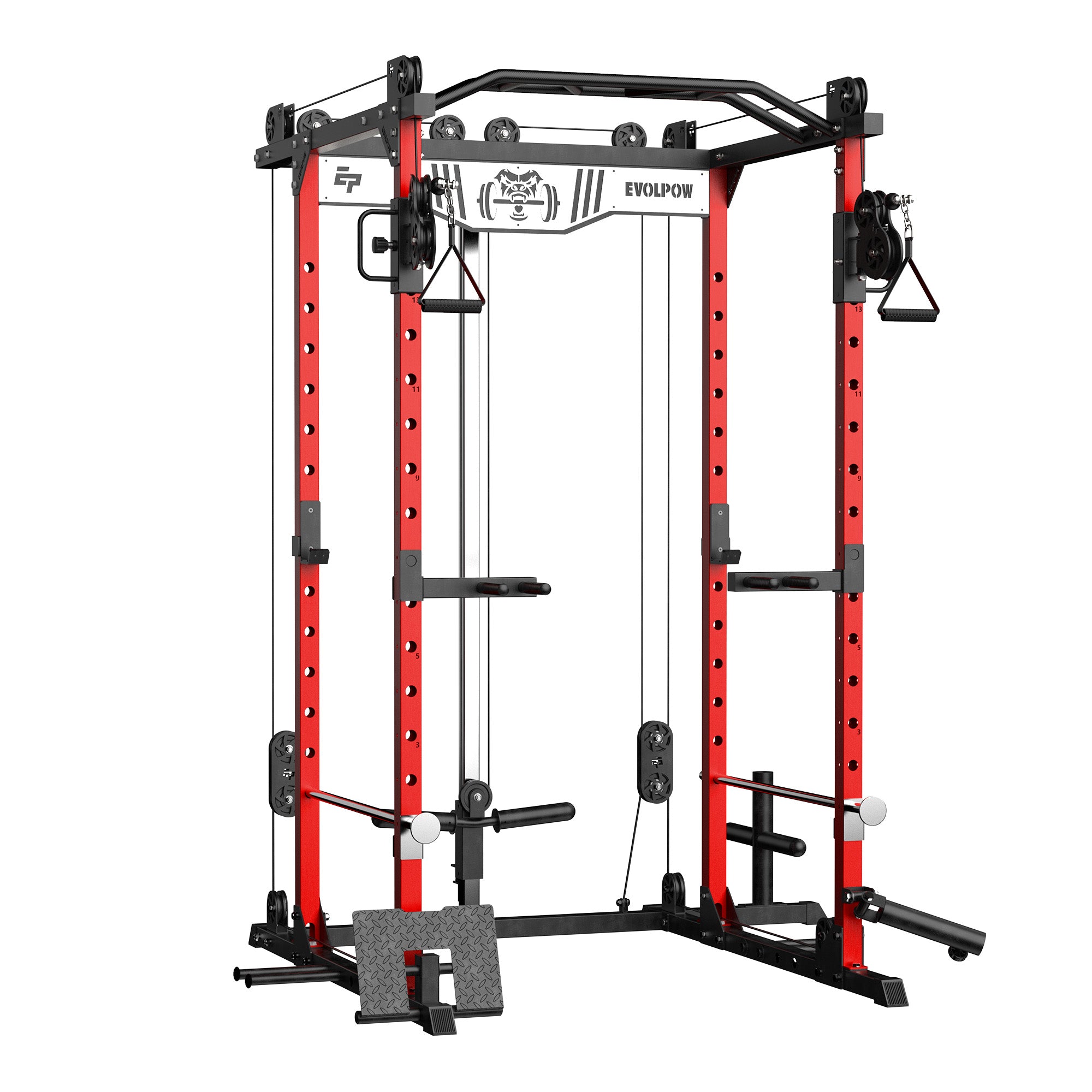Fueling your body correctly before and after a workout is crucial for maximizing your performance, accelerating recovery, and achieving your fitness goals. Whether you're embarking on a basic strength training journey to build muscle, fine-tuning your weight loss routine for a leaner physique, or pushing your limits with an intense gym training program, understanding the right nutrition can make all the difference. In this blog, we'll explore the ideal foods to consume before and after your workout, tailored to give you practical advice and meal ideas to optimize your exercise regimen. Let's dive in and discover how to fuel your fitness journey correctly.
CONTENTS
How Does Food Fuel Exercise
Eat Before a Workout
Eat After a Workout
Conclusion
How Does Food Fuel Exercise

The food you consume serves as vital fuel for your workouts, not only influencing your energy levels during exercise but also crucially impacting your ability to recover swiftly and build muscle effectively. By strategically consuming the right nutrients both before and after exercising, you can significantly enhance your performance, expedite the recovery process, and ultimately facilitate the achievement of your fitness goals with greater ease. Pre-workout meals equip you with the necessary energy to push through intense sets, whereas post-workout nourishment plays a pivotal role in repairing muscle fibers, replenishing depleted nutrients, and maintaining overall well-being. Striking a balance between these two meals is paramount to ensuring your body is optimally prepared to meet the demands of exercise and efficiently recovers thereafter.
Eat Before a Workout
Embarking on a workout session with a well-thought-out pre-exercise nutrition plan is the cornerstone of achieving optimal results. Before delving into the specifics of what to consume, let's explore the rationale behind this crucial step. Eating before a workout is not merely a matter of filling your stomach; it's a strategic move to arm your body with the essential nutrients required to sustain energy levels, prevent fatigue, and enhance overall performance.
The Purpose and Benefits of Pre-Workout Nutrition

Fueling up before exercise serves multiple purposes. Firstly, it ensures that your body has ample reserves of energy to draw upon during intense physical activity, preventing the depletion of muscle glycogen, which is your body's primary energy source during high-intensity workouts. Secondly, by maintaining stable blood sugar levels, pre-workout nutrition supports cognitive function, allowing you to stay focused and make split-second decisions during your routine. Furthermore, it can stimulate muscle protein synthesis, a process vital for muscle growth and repair, setting the stage for post-workout recovery and adaptation.
In simple terms, pre-workout nutrition is to prepare your body for the demands of your training session. Increase your performance and also minimize muscle damage while exercising.
Nutrient Selection
-
Energy Optimization: Carbohydrates serve as the primary energy source for your muscles. Opt for complex carbohydrates like whole grains and legumes, as they provide a gradual release of glucose into your bloodstream. This helps in maintaining consistent energy levels and prevents sudden blood sugar spikes that could lead to mid-workout crashes.
-
Muscle Preservation: Protein plays a crucial role before exercise by preventing muscle breakdown (catabolism) and promoting the synthesis of new muscle proteins. Incorporate sources such as lean meats (like chicken or pork), fish (such as salmon or tuna), eggs, and plant-based options like tofu or tempeh into your pre-workout meal or snack.
-
Strategic Timing: Ideally, consume a balanced meal containing carbohydrates, protein, and a small amount of healthy fats approximately 2-3 hours before your workout. This allows adequate time for digestion and absorption, ensuring your body has sufficient fuel and amino acids available when you start exercising. Examples of suitable pre-workout meals include whole grain toast with almond butter and banana, or Greek yogurt with berries and a sprinkle of nuts. If pressed for time, opt for a smaller snack 30-60 minutes beforehand, focusing on easily digestible carbs and a source of protein, such as a banana with a handful of almonds or a slice of whole-grain bread with hummus. This approach helps to prevent any potential stomach discomfort during your workout session.
Eat After a Workout

After a grueling workout, your body is in a prime state to absorb nutrients, repair damaged tissues, and build muscle. Proper post-workout nutrition is crucial in facilitating this recovery process, ensuring that you bounce back stronger and faster for your next session. In this section, we'll explore the rationale behind post-workout eating, the key nutrients to focus on, and some delicious and nutritious meal ideas to inspire your recovery plan.
The Importance of Post-Workout Nutrition

Exercise, especially high-intensity training, puts significant stress on your muscles, causing microscopic tears in muscle fibers and depleting your body's energy stores. Post-workout nutrition serves as the cornerstone of the recovery process, replenishing energy reserves, repairing damaged tissues, and promoting muscle growth. By consuming the right nutrients at the right time, you can maximize your body's ability to adapt and improve.
Key Nutrients for Post-Workout Recovery
-
Protein: Protein is essential for muscle repair and growth. Consuming protein post-workout helps your body replenish amino acids used during exercise, stimulating muscle protein synthesis and reducing muscle soreness. Good sources of protein include chicken breast, lean beef, fish, eggs, Greek yogurt, or plant-based options like tofu or lentils.
-
Carbohydrates: Carbohydrates are your body's primary source of energy. Eating carbohydrates post-workout helps replenish muscle glycogen stores, ensuring that you have enough energy for your next workout and supporting overall recovery. Opt for complex carbohydrates such as whole grains (brown rice, quinoa), fruits (bananas, berries), vegetables (sweet potatoes, spinach), or whole-grain bread.
-
Electrolytes: Sweating during exercise can deplete your body of essential minerals like sodium and potassium. Replenishing these electrolytes post-workout helps maintain hydration and supports muscle function. Foods rich in electrolytes include bananas (potassium), nuts (magnesium), leafy greens (calcium), and coconut water (sodium and potassium).
-
Hydration: Fluids are crucial after exercise to replace what was lost through sweat. Water is generally sufficient, but if you've engaged in prolonged or intense exercise, consuming an electrolyte solution can be beneficial. Aim to drink water or diluted sports drinks, and include juicy fruits like watermelon to boost hydration levels effectively.
Timing Your Post-Workout Meal
The ideal time to consume your post-workout meal or snack is within 30 minutes to 2 hours after exercise. This window, known as the "anabolic window," is when your body is most receptive to nutrient uptake, maximizing the benefits of post-workout nutrition.
Conclusion
It's important to remember that the specifics of your pre- and post-workout meals can be adjusted based on the type of exercise you engage in. For instance, endurance athletes may benefit from consuming more carbohydrates before and after long training sessions to maintain energy levels and support recovery. On the other hand, those focused on weight loss may prioritize lean protein and vegetables in their post-workout meals to keep calorie intake in check.
In conclusion, whether you're looking to lose weight or gain muscle, integrating strategic nutrition into your workout regimen can markedly enhance your results. By understanding and implementing these dietary principles, you can ensure that you're not only well-fueled for your workouts but also recovering optimally afterward.
FAQ
Q: Why is it important to eat before and after a workout?
A: Eating before a workout provides energy to fuel your exercise and eating after helps with muscle recovery and repair.
Q: Can I skip my post-workout meal?
A: It's not recommended. Skipping post-workout nutrition can hinder muscle growth and recovery, as well as negatively impact future workout performance.
Q: What if I'm vegan or have dietary restrictions?
A: There are plenty of plant-based options that provide the necessary nutrients before and after a workout. Consult with a registered dietitian to develop a personalized plan that fits your dietary needs and goals.






